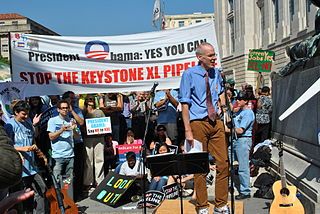350.Org Says: Stop Investing in the Fossil Fuel Industry
I’m fascinated by the dynamics at work in our society that surround climate change. The United States is notably sluggish in its response to the challenge, and, perhaps because of this, certain groups with progressive ideals are getting fairly militant. One example is the Sierra Club, which, after 120 years of law-abiding environmental advocacy, announced recently that it will espouse civil disobedience as a weapon to create a progressive change in national energy policy.
Another group that’s shown itself more than willing to take an aggressive tack here is Bill McKibben’s 350.org, which , according to this piece by environmental writer Marc Gunther:
….have launched a national campaign to persuade colleges, universities, churches, foundations and, yes, people like you and me, to stop investing in the fossil fuel industry. The campaign raises interesting questions as, I’m sure, McKibben hoped it would. Among them: Does divestment make sense as a strategy to curb climate change?
At the risk of sounding cavalier, it’s hard to imagine how such a strategy could possibly be ineffective. Lower demand for shares of stock will reduce total market capitalization, and therefore diminish horsepower in terms of all the factors that make the industry what it is: legal strength, political muscle, and good will in terms of public relations. I’m interested to see what happens when the common American sees through the oil companies’ PR and rejects the idea that fossil fuels are clean, safe, abundant, and form the heart of our modern lifestyle.


Obviously fossil fuels are not clean, safe, and abundant, although at the present time they do actually form the heart of our modern lifestyle. Unless something can be made available to substitute for fossil fuels, simply taking action to halt the use of fossil fuels will backfire as people’s lives become disrupted.
During the Clinton administration, all research on developing nuclear technologies was halted; it was said to be unnecessary. Had that no happened, probably we’d now have nuclear technologies in place that few people would find unacceptable. I greatly fear that we will pay a huge price for the mistake of halting nuclear R & D.
It has been asserted that nuclear power has become too expensive to consider. The reason that it has become so expensive is that those opposed to nuclear power have found ways to make it too expensive. When legal tactics are used to delay bringing completed or partially completed nuclear power plants on line, the interest costs keep piling up and can easily double the total costs; that is exactly what has happened. It has been an intentional tactic.
Craig,
That’s not going to work.
The problem is that, once the business sells stock to the open market, there is no direct benefit to the business if the stock price increases or decreases.
It’s like selling a piece of jewelry: if you sell it, and the next week the value of gold spikes… you get nothing, you don’t own the piece of jewelry anymore.
Most fossil fuel companies are quite profitable, and are paying dividends to shareholders. Not purchasing that stock is not going to change the dividend structure, nor would it in any way change the fact the company is profitable.
The only way you can impact the company is if you refuse to buy FROM them. This is true for products, and it’s true for stocks – If you refuse to participate in IPO’s or early investment rounds, or if you just cut back on purchasing their product… then you can make an impact. Otherwise… no.
The best way that you can hurt them as an investor is to invest money into viable competition… You can hurt coal by investing in a wind farm, or donating to a charity that improves insulation in low-wage houses… but if you say “I won’t buy coal, I’ll buy Apple instead, you won’t change their profit margin by a single penny.